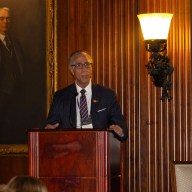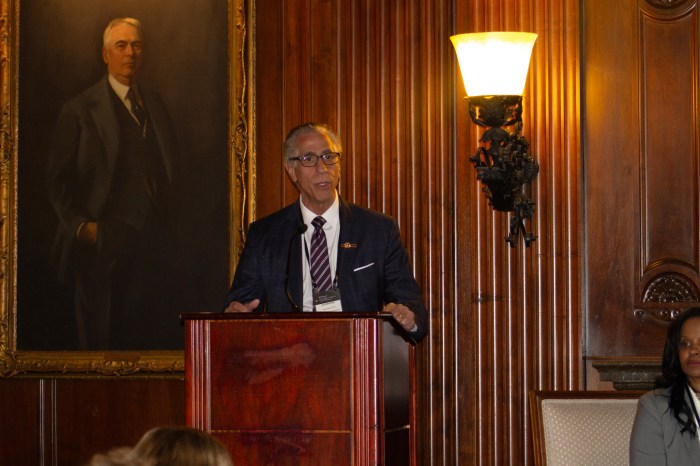An elder abuse law mandating the training of senior center personnel in the detection of various forms of exploitation cleared the City Council and will likely become law in January.
The administrative code will be amended as soon as Mayor Michael Bloomberg signs the bill, which passed the city council in a unanimous vote on Thursday, September 4, to include a provision mandating the commissioner of the New York City Department of Aging establish and maintain a training program for employees of senior centers and employees of entities that have contract with the department to help workers identify elder abuse.
Councilmen Jimmy Vacca sponsored the legislation, which could take effect as soon as New Years Day 2009.
“Much of the research I have done while in the council goes to the fact that elder abuse is not recognized,” Vacca said. “So, I thought it would be a good idea to use senior centers as focal points for this measure and that we should train all of our senior workers to recognize elder abuse.”
The legislation provides for a “refresher course,” every three years. Senior centers will be required to hold at least two educational sessions per year during which members or guests of the senior centers will learn how to detect and report instances of elder abuse.
“Once the staff is trained to look for warning signs, which include the physical, emotional, psychological, and financial state of the senior, those who come to the centers and know other seniors can teach their friends and associates,” Vacca noted. “Seniors know other seniors through church groups, AARP, and other social functions.
The law mandates that the commissioner shall require that every senior center display signage in a prominent common area section within the center that directs those who need information regarding elder abuse detection, reporting, counseling and services to call the 311 citizen service system or the department’s Elderly Crime Victims Resource Center.
Vacca noted that with 327 senior centers in the city, and 20% of the entire senior population using the centers, they offer an untapped resource in addressing the often unspoken issue of elder abuse.
“Very few seniors will come forward and say they have been abused,” Vacca commented. “I want to bring this issue out of the shadows and shed light on it..”




















